Andy Shernoff was the primary songwriter for The Dictators, a seminal New York City proto-punk rock band whose huge influence was sadly never matched by huge record sales. Shernoff also played bass, keyboards, and sang many of the songs. The band’s first album The Dictators Go Girl Crazy!, released in 1975, is a brilliant mix of irreverent lyrics and youthful energy. Two more albums followed – 1977’s Manifest Destiny and 1978’s Bloodbrothers. Their last studio album was 2001’s D.F.F.D. (“Dictators Forever Forever Dictators”), which is arguably their strongest album after their debut. Shernoff also played bass on Joey Ramone’s 2002 solo album Don’t Worry About Me, and has produced and/or played with various other bands/artists. He currently is playing solo shows at Manhattan’s Lakeside Lounge, and just released this video.
Jeff Moehlis: How is your residency at Manhattan’s Lakeside Lounge going so far?
Andy Shernoff: It’s really been a liberating experience. After years of rehearsing for the gig, I had the genius idea of making the gig the rehearsal. I meet up with my backing musicians about ten minutes before the show. We quickly run over the harmonies and rhythms then we get on stage and wing it. It’s a great way to try out new tunes and the spontaneity keeps everybody on their toes.
JM: I understand that there will be special guests joining you for some shows. Who is coming?
AS: It’s rarely planned out. If a musician buddy is in the audience, I invite them up to do a song. Scott Kempner from The Dictators and The Del Lords is in town this week so I asked him in advance to do a few tunes. In the past, I’ve had Kevn Kinney from Drivin N Cryin, Albert Bouchard from The Blue Oyster Cult as well as lesser known friends like Tom Clark and Carla Rhodes.
JM: You’re best known as a founding member and the primary songwriter for The Dictators. When this band formed, what was the New York music scene like and what were your goals?
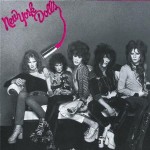
AS: We formed in 1973 before there was a Ramones, a CBGB’s, Nirvana or MTV. There was only one club in New York that booked original bands, The Coventry in Queens. The NY Dolls ruled the roost so every band mimicked their look and sound; very poorly I might add. We knew we looked ridiculous in satin and platforms so we wore the same leather jackets, jeans and T-shirts on stage that we wore off stage. A glam rock Joey Ramone was a regular in our audience and that was a sight indeed.
Our goals?…We were teenagers so we were looking to have a good time and make music we liked. The idea that I would still be performing 35 years later is quite astounding.
JM: How did your record deal with Epic come about?
AS: The same guys who managed the Blue Oyster Cult managed us and they had the relationships at Epic. I think they had some compromising photos of a record company executive because The Dictators were my first ever band, had existed for less than a year and had never done a proper gig yet they still managed to swing a deal for us.
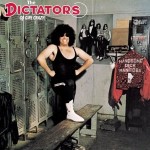
JM: Could you give me your reflections on the first Dictators album?
AS: Personally, I prefer the demo versions of the songs available on the album “Everyday is Saturday” released by Norton Records. The drummer on the demo was at least able to play a groove but I understand the attraction the record has had through the years. On its release in 1975, it was totally unique in its packaging and approach. If the Ramones defined the sound of punk rock, the first Dictators album helped establish the attitude and lyrical stance.
JM: I’ve always been curious – what does “Two Tub” refer to in “Two Tub Man”? This is probably my favorite Dictators song, by the way.
AS: Two Tub Man was the very first song I ever wrote. I wanted to write a song about a kid with a punk rock attitude. I had the title and I went with it because it sounded good to my ears just like Wop Bop a Lu Bop la Or Rama Lama Ding Dong did to an earlier generation of songwriters. I was much more impulsive in my songwriting in those days.
JM: The cover songs “I Got You Babe” and “California Sun” are great, both in choice and in execution. Why these songs?
AS: California Sun was a song I always loved so it was an obvious choice. We recorded that a year before the Ramones incidentally. I Got You Babe was suggested by one of our producers. I’m still not sure what the joke was but it was a pretty wacky cover and certainly set us apart from other bands.
JM: Like many people, I think that the first Dictators record is brilliant, but it never really took off and the band got dropped by Epic. What went wrong?
AS: We had been going through the Spinal Tap exploding drummer situation and settled on a guy with a cool looking drum kit. Big mistake as we learned he was incapable of keeping time or a groove. Then there was the production of the album which was not up to the standards of the day. This was long before the idea of DIY existed. Add on a confusing package with a wrestler on the cover and you have all the ingredients of a cult band.
Thankfully, It’s been re-released a dozen times in different formats and has found its audience over time.
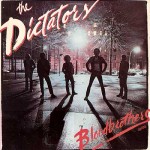
JM: How did the experience with the first album affect the way the band approached the second and third albums?
AS: It was major. When the first album was released there wasn’t a punk rock scene so there was literally no audience for what we were doing. It was a flop and Epic records dropped us quickly. When we got a second chance with Elektra we were anxious not to miss our second opportunity at rock stardom so we made a record that was very mainstream in a futile attempt to get on the radio. So in the historic year of 1977 when the world was shifting towards what we were doing on our first album, we were blindly swimming against the movement we helped start. After we toured the UK in 1977 with The Stranglers it became clear we were heading in the wrong direction, away from our potential fan base, so we stripped it down for our third album Bloodbrothers but by that time the train had left the station.
JM: The first three Dictators albums were produced by Murray Krugman and Sandy Pearlman. What did they bring to the music and recordings?
AS: They understood where we were coming from, our sense of humor and our musical influences but they weren’t musicians so they couldn’t guide us when it came to important things like grooves, keys or song structure. I don’t feel that my musical vision for the band was realized until our final studio album ‘D.F.F.D.’
JM: Of course, in addition to making albums, The Dictators performed lots of shows in New York City. Did you have a preference for playing The Coventry, Max’s, CBGB’s, or elsewhere?
AS: We never played Max’s due to the Wayne County incident. The Coventry was our training ground but CBGB’s was our home base. The audience, the sound and the vibe was incredible. I probably played on that stage two hundred times and I’m proud that we headlined the final Friday and Saturday night of the clubs existence.
JM: What is your take on the incident with Wayne County that got The Dictators banned from Max’s?
AS: That was an incident fueled by alcohol, drugs and miscommunication. It is water that has long passed under the bridge. Everybody is friendly now, having made amends many years ago.
JM: The Dictators also toured England and Europe in 1977. What was that like, and how was it different from the New York scene?
AS: In the US punk rock was an underground scene. In the UK it was more than just a musical phenomenon incorporating culture, fashion, politics, and art. The bands were hugely popular selling out theaters and enjoying hit singles and number one albums.
At CBGB’s people sat at tables and chairs and politely applauded the act as if it were an REO Speedwagon concert. In England they were spitting on the bands and getting rowdy. There was no slam dancing at a Television show.
JM: How were The Dictators received at U.S. concerts outside of New York City? And did you dread sharing the bill with non-punk bands?
AS: Every show before our first album was pretty disastrous. We were kicked off tours with Rush and Nazareth and had unfortunate experiences opening up for Olatunji and Billy Preston. By the time our second record was released people were getting hipper so when we opened for Kiss, the Blue Oyster Cult or AC/DC there were always pockets of fans there to see us.
JM: Looking back, how would you describe The Dictators’ place in and legacy for the 1970’s New York City punk rock scene?
AS: We’ve been called “the missing link” as the bridge between glam and punk. I suppose we were part of the ‘fuck art, let’s rock’ contingent along with The Ramones, Dead Boys and Heartbreakers but I’ll let somebody else analyze my legacy.
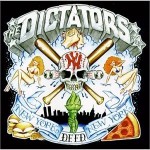
JM: In 2001, The Dictators released the brilliant comeback album D.F.F.D. Did you ever get your answer to the question asked in the first song, “Who Will Save Rock and Roll?”
AS: As I say in the song… “My generation is not the salvation”, so don’t look to anybody over 30. When I started out, rock and roll was maybe 20 years old so it was possible to be innovative and push the limits. It’s only 3 chords and a backbeat so every permutation has been explored now that the genre has reached middle age, I suspect like jazz, its best days are in the past.
JM: This album came out when people were still in a bit of shock about the events of 9/11. How did those events affect you and the band?
AS: It was impossible to live in New York and not be affected by 9/11. I know people who died, people who just missed dying and heroic first responders. The event was pretty horrible but I believe the wars it inspired where hundred of thousands more have died is equally as horrible.
JM: What is the status of The Dictators right now?
AS: I reached the limits of my creativity with The Dictators a long time ago. I get my kicks from creating new music so my ducks are lined up in a different direction now. So the short answer is, there no plans for shows or recording.
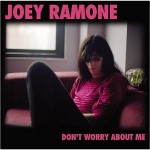
JM: You played on Joey Ramone’s great solo album Don’t Worry About Me. What was the mood like while that was being recorded?
AS: We had to record around Joey’s chemotherapy, which was successful at the time. I remember it as a fun, positive, creative experience. Joey was in a good mood and his vocal on What a Wonderful World might be the best of his career.
JM: You knew Joey Ramone for over two decades. How would you describe the Joey Ramone that you knew?
AS: Most musicians like myself are craftsmen but Joey had a true artistic soul. He was funny, kind and a very generous musical partner. I don’t think there ever was a bad word between us. He had his problems with OCD but half the people I knew in those days were weird so it didn’t really faze me. Of course I miss him and can only dream about the great music he could’ve made.
JM: What are your plans, musical or otherwise, for the near future?
AS: I just released a new animated video for my song Are You Ready To Rapture? Animation is very labor intensive so it took almost a year to finish. It is also available as a vinyl 45 with an unreleased Joey Ramone song on the B-side.
I’m playing every Wednesday at The Lakeside Lounge in the gentrified East Village and on November 12 and 13 at the Norton Records 25th Anniversary All Star Spectacular.
Then I’m gearing up to record an EP of four new songs in January.
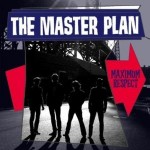
My band Master Plan is also planning shows in 2012 to promote our latest CD Maximum Respect.
JM: What advice would you give to an aspiring songwriter/musician?
AS: It takes 10,000 hours to excel in your craft so enjoy the journey.
JM: Where are you responding from?
AS: I’m in Greenpoint Brooklyn.

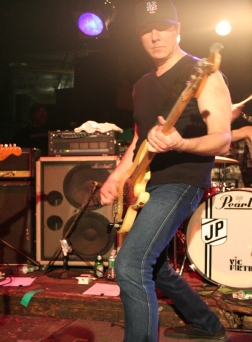
Cool interview!